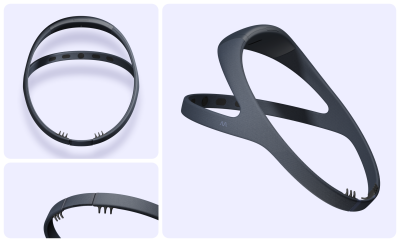Beacon Biosignals is living out a dream scenario: Mere weeks after acquiring EEG headset maker Dreem, it has earned FDA clearance for a sleep monitoring solution that combines the Dreem hardware with Beacon’s own artificial-intelligence-based software.
The sleep monitoring system is aimed not at doctors seeking to make one-off diagnoses off their patients’ sleep disorders, but at clinical research teams developing new treatments for a variety of brain-related conditions.
“Longitudinal EEG sleep data may be a powerful tool to gain clinical insight into a wide variety of neurological and psychiatric conditions,” Jacob Donoghue, M.D., Ph.D., Beacon’s CEO and co-founder, said in the company’s announcement Thursday. “We are enabling high-fidelity, overnight brain activity to be efficiently collected in the patient’s home, opening new doors for clinical trial endpoints.”
Boston-based Beacon has developed a platform that uses machine learning algorithms to sift through EEG readings, looking for biomarkers that have been previously linked to specific diseases and genetic conditions.

The Dreem device, meanwhile, is a lightweight headband equipped with six EEG electrodes. The sensors can collect up to 24 hours’ worth of brain wave data, while its built-in accelerometer also keeps track of wearers’ head movements and body positions. The headset connects to a smartphone app, dubbed Dreem Connect, where users can ensure the devices are properly connected to WiFi and fully charged, see instructions for wearing the headband and start their EEG recordings, and where researchers can view the raw session data.
When the hardware and software are combined, the resulting Dreem 3S system gives clinical researchers an all-in-one tool for sleep monitoring and analysis. The artificial intelligence algorithms automatically calculate specific endpoints throughout the wear period and churn out reports displaying the findings both for individual participants and for the study cohort as a whole.
The AI has been proven to produce analyses equal to or even better than those of human experts, according to Beacon, and that—plus the fact that the system can be used from the comfort of a study participant’s own home—eliminates the need for them to spend the night in unfamiliar sleep labs or rely on less-accurate at-home wrist monitors.
“The advanced machine learning algorithms of the Dreem 3S will be instrumental in reducing the human variability that is present within existing clinical workflows, allowing for more precise, accurate insights for driving forward therapy development for sleep and sleep-related disorders,” said Alexander Chan, Ph.D., Beacon’s VP of analytics and machine learning
According to the official 510(k) authorization notice (PDF) from the FDA, Beacon submitted its application for clearance in mid-July, just about a week after announcing its acquisition of Paris-based Dreem’s R&D business.
Beacon didn’t disclose the financial terms of the acquisition deal, but noted in its announcement at the time that it had secured a funding round—also of an undisclosed amount—from its existing group of backers, led by General Catalyst, as part of the deal.